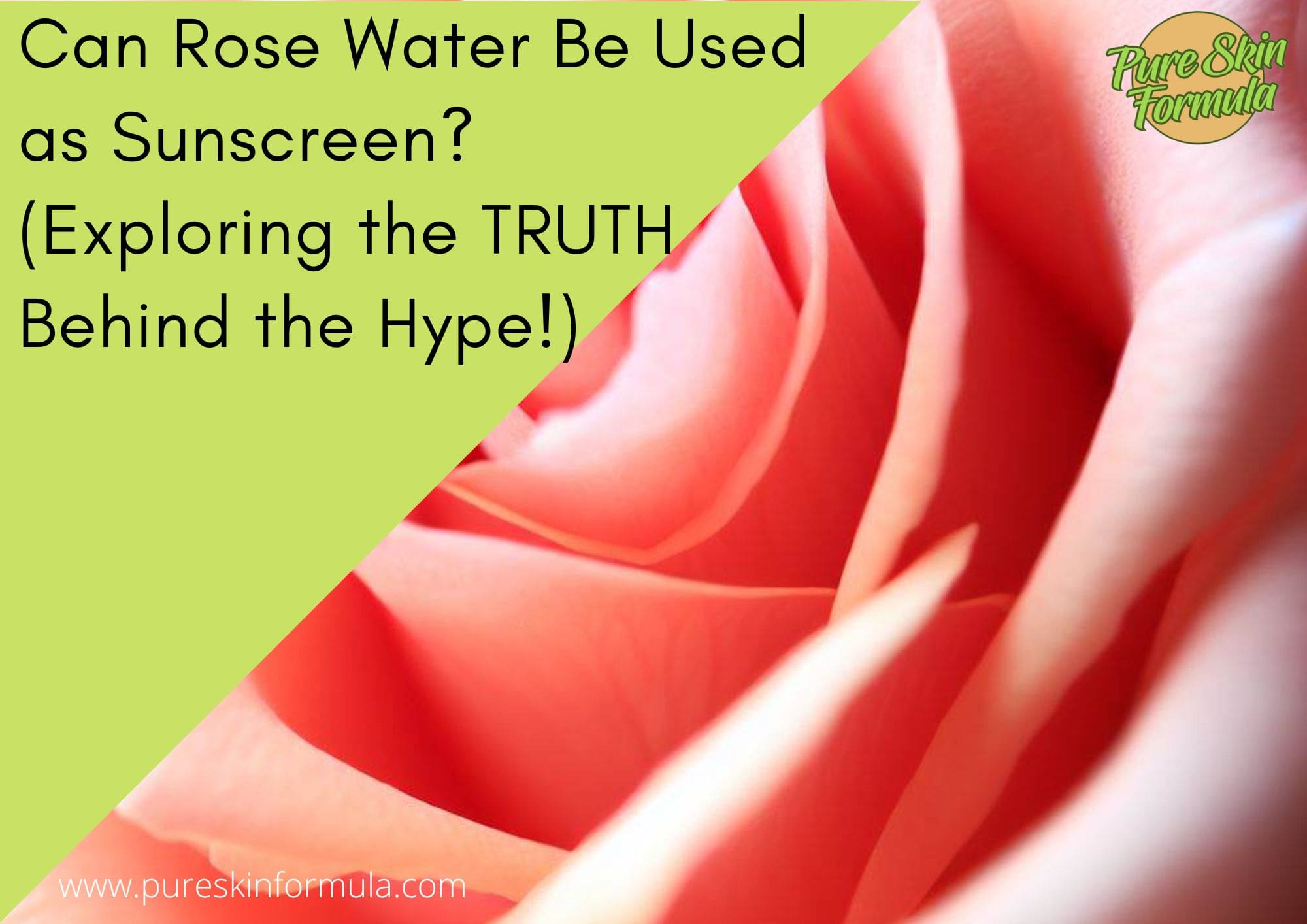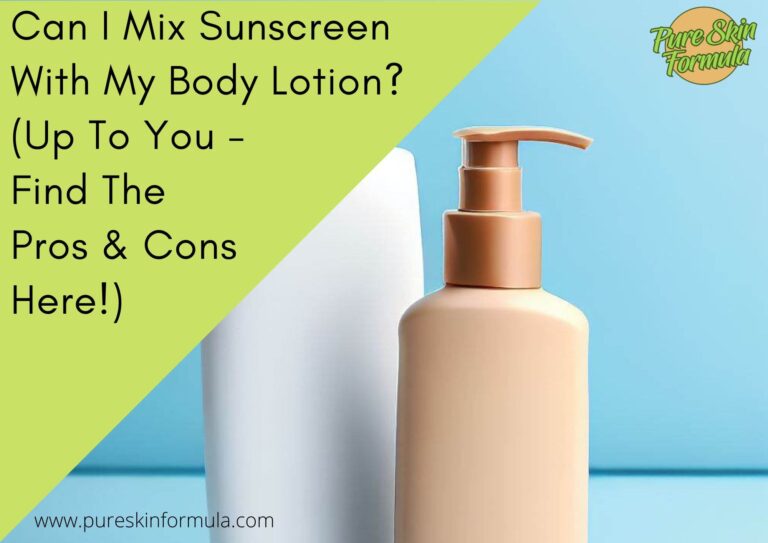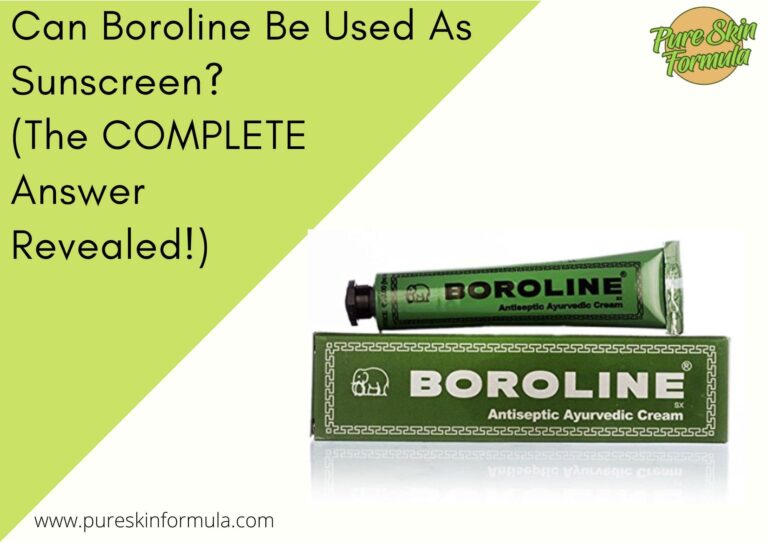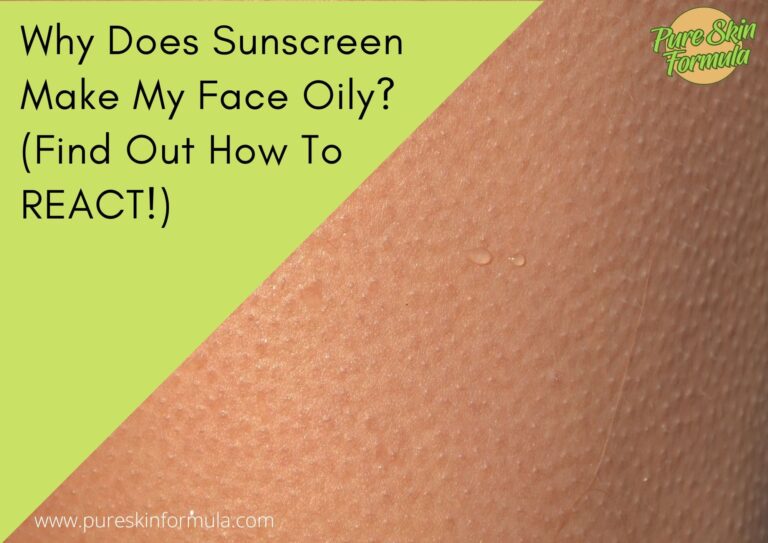Picture this: a gentle breeze, the warm sun kissing your skin, and a bouquet of roses blooming nearby. It’s a scene straight out of a dream, and it makes you wonder—can rose water, with its delicate fragrance and myriad skincare benefits, also shield your skin from the sun’s harmful rays?
The idea is intriguing, but let’s use science and separate fact from fiction. In this article, we embark on a journey to uncover the truth about rose water as a sunscreen. So, please grab a cup of tea, sit back, and explore the captivating world of rose water and its potential as a natural sun protectant.
Can rose water be used as sunscreen?
No, rose water cannot be used as sunscreen. While rose water has moisturizing, soothing, and antioxidant properties that can benefit the skin, it does not provide sufficient sun protection.
Sunscreens are specifically formulated to protect the body from harmful UV rays by physically blocking or chemically absorbing them. Rose water lacks the necessary components, such as Sun Protection Factor (SPF) and broad-spectrum protection against UVA and UVB rays, which are essential for adequate sun protection.
Relying solely on rose water would leave the skin vulnerable to sun damage, including sunburn, premature aging, and an increased risk of skin cancer. It is crucial to use sunscreen with an appropriate SPF rating and to follow recommended practices, such as seeking shade, wearing protective clothing, and limiting sun exposure during peak hours.
Let’s go unto detail.
What are the properties of rose water?
Rose water has a long history, and its origins can be traced back to ancient times. It is believed to have originated in the Middle East, where roses were cultivated for their fragrance and therapeutic properties.

The extraction process of rose water involves steam distillation or hydro-distillation of rose petals. This method helps capture the essence and beneficial compounds in the petals, resulting in a fragrant and soothing liquid.
Rose water is packed with various nutritional components that can benefit the skin. It contains vitamins, such as vitamin C, known for its antioxidant properties. Antioxidants help combat free radicals and protect the skin from environmental damage.
Rose water contains natural oils, such as geraniol and citronellol, which possess antibacterial and anti-inflammatory properties.
These nutritional components contribute to several potential skin benefits. Rose water can help hydrate and moisturize the skin, making it an excellent choice for dry or sensitive skin types. It may also help soothe skin irritations and reduce redness.
The gentle nature of rose water suits those with acne-prone, aging, or oily skin.
Is there a link between rose water and sun protection?
The already mentioned antioxidants can protect the skin from UV damage by neutralizing free radicals, harmful molecules generated by UV radiation. They can cause oxidative stress and contribute to premature aging and skin damage.
While rose water does contain antioxidants, their concentration may be lower than in dedicated antioxidant-rich products or traditional sunscreens. Therefore, relying solely on rose water for UV protection may not provide sufficient defense against the damaging effects of the sun.
Rose water does not act as a physical or chemical sunscreen. Physical sunscreens contain mineral ingredients, such as zinc oxide or titanium dioxide, that create a protective barrier on the skin, reflecting and scattering UV rays. Chemical sunscreens, on the other hand, contain organic compounds that absorb UV rays and convert them into heat.

Rose water lacks these specific ingredients and mechanisms. It doesn’t provide the necessary SPF (Sun Protection Factor) rating or broad-spectrum protection against UVA and UVB rays.
Although rose water has been used for centuries in skincare, limited scientific research has focused explicitly on its sun-protective effects.
Most of the available studies explore rose water’s antioxidant and anti-inflammatory properties rather than its direct efficacy as a sunscreen.
While anecdotal evidence suggests that rose water may provide a mild level of sun protection, it is essential to approach such claims cautiously. More comprehensive research is needed to determine the specific sun-protective capabilities of rose water and its potential to prevent UV-induced skin damage.
While rose water cannot be used as a standalone sunscreen, it can still be incorporated into your sun protection routine in a complementary manner. It can be a hydrating and soothing ingredient when combined with proper sunscreen.
How to use the benefits of rose water in your skincare?
Rose water can be an excellent addition to your skincare routine, providing various benefits to the skin. It can be used as a toner or facial mist after cleansing to help balance the skin’s pH levels and prepare it for other skincare products. Simply spritzing rose water onto your face can give you a refreshing and revitalizing sensation.
You can also mix rose water with other skincare products, such as moisturizers or serums, to enhance their hydrating and soothing effects. Adding a few drops of rose water to your favorite face mask can elevate the experience and nourish and rejuvenate your skin.
After spending time in the sun, your skin may benefit from the soothing properties of rose water. Sun exposure can leave the skin feeling dry, sensitive, or slightly irritated. Spritzing or applying rose water onto the affected areas can help cool and hydrate the skin, relieving discomfort.
The gentle nature of rose water makes it suitable for all skin types, including those with sunburn or sun sensitivity.
Practical tips for using rose water in sun care
Look for rose water made from pure and natural ingredients, without any added synthetic fragrances or preservatives. Organic rose water ensures you get the best possible quality and minimize the risk of potentially harmful additives.
Reading product labels and checking for certifications can help you identify authentic and trustworthy rose water brands. Look for certifications such as USDA Organic or Ecocert, which guarantee that the rose water is produced using organic farming practices and free from pesticides.
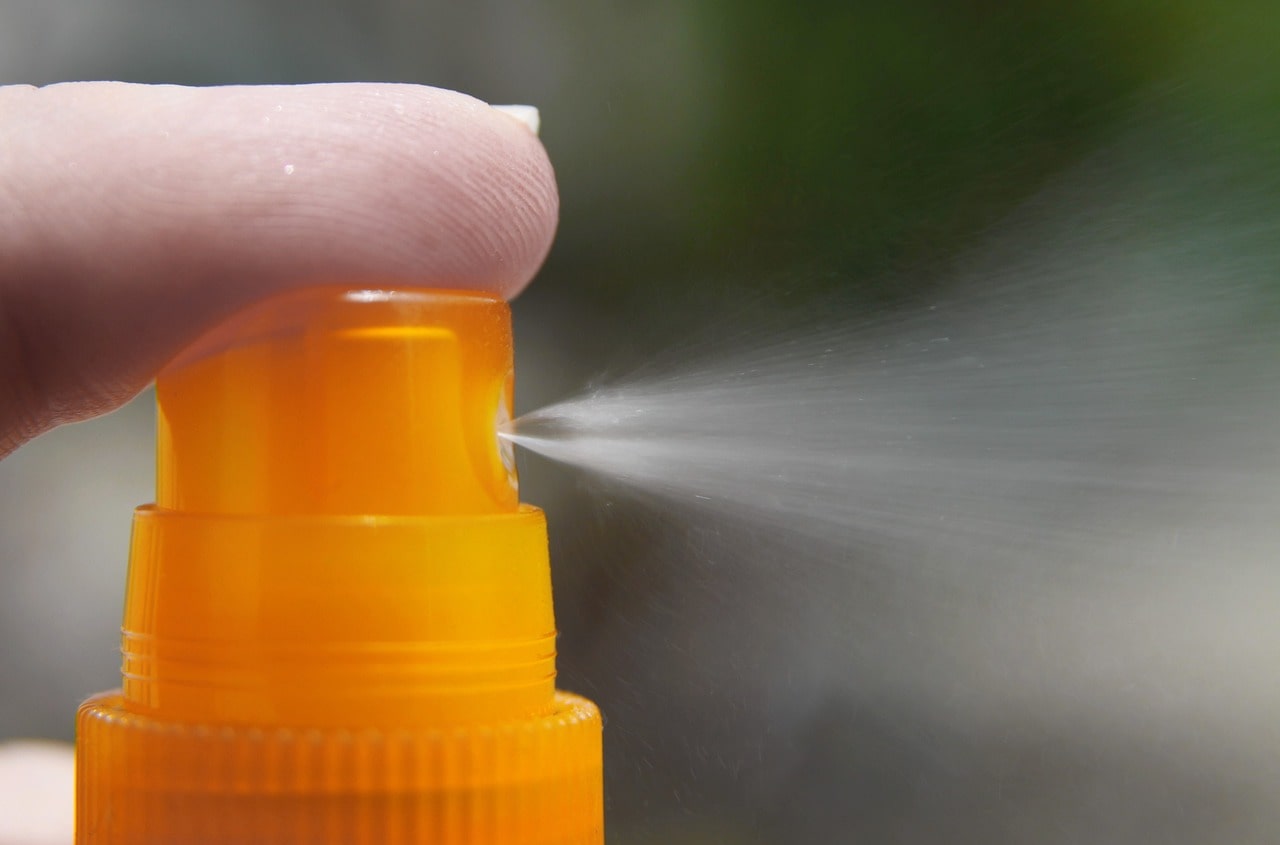
Consider incorporating rose water into a layered skincare approach to get the most out of it. Start with a gentle cleanser to remove any impurities or sunscreen residue from your skin.
Follow up with a toner, such as rose water, to balance your skin’s pH levels and provide a refreshing boost of hydration.
After applying rose water, you can follow it with a lightweight moisturizer or a dedicated sunscreen with an appropriate SPF rating.
This layered approach ensures that your skin receives adequate hydration and protection from the sun’s harmful rays. Allow each product to fully absorb before applying the next one.
Understand your skin sensitivities and conduct patch tests before incorporating them into your sun care routine. Apply a small amount of rose water on a small area of your skin, such as the inside of your wrist or behind your ear. Observe for any signs of irritation, redness, or discomfort for 24 hours.
If your skin shows any adverse reactions during the patch test, it may indicate sensitivity to rose water. In such cases, it’s best to avoid using it or consult with a dermatologist before proceeding.
It’s also worth noting that people with specific allergies to roses or other related botanicals should be cautious when using rose water. Always read product labels carefully.
To wrap it up
While rose water may offer moisturizing, soothing, and antioxidant properties, it cannot be used as a substitute for a proper sunscreen. Rose water lacks the necessary SPF rating and broad-spectrum protection to shield the skin from harmful UVA and UVB rays.
However, incorporating rose water into your skincare routine can still provide benefits such as hydration and calming effects after sun exposure. Regarding sun protection, it is crucial to rely on dedicated sunscreens with appropriate SPF ratings and follow recommended sun safety practices.
Embrace the beauty of rose water for its skincare advantages, but always prioritize the health and protection of your skin under the sun.
Thank you for reading!
Valeria

